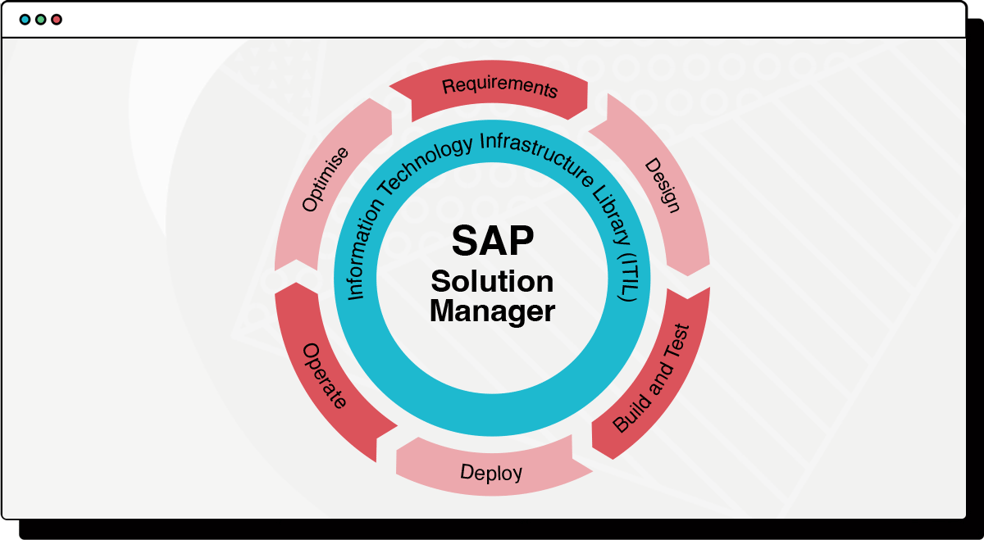When we talk about ERP systems, one name always seems to stand out above the rest: SAP.
Over the years, SAP has become synonymous with enterprise resource planning, with its suite of software solutions used by businesses of all sizes across the globe. But how did SAP come to dominate the ERP market? In this post, we'll look at the history of SAP and how it grew to become one of the world’s largest software providers.
We'll also explore the company’s contribution to the ERP industry, so whether you're a business owner looking to improve your resource management, or simply interested in the history and evolution of ERP systems, this blog post is sure to provide you with valuable insights and information. Join us as we explore the past, present, and future of the ERP systems market and the role that SAP has played in revolutionising this industry.
But before we delve into SAP's revolutionary role, let's first understand what ERP systems are all about...
Understanding ERP Systems
What are ERP Systems?
 Managing multiple departments and functions can be a daunting task. There are a lot of moving parts that need to be taken care of; from finance and accounting to supply chain management, human resources, sales, and customer relationship management, this can all get to be too much. You then add in the fact that these functions essentially stand alone and do not necessarily communicate with each other, then you might have a ticking timebomb on your hands. This is where ERP (Enterprise Resource Planning) systems come into play.
Managing multiple departments and functions can be a daunting task. There are a lot of moving parts that need to be taken care of; from finance and accounting to supply chain management, human resources, sales, and customer relationship management, this can all get to be too much. You then add in the fact that these functions essentially stand alone and do not necessarily communicate with each other, then you might have a ticking timebomb on your hands. This is where ERP (Enterprise Resource Planning) systems come into play.
ERP systems are powerful software solutions designed to integrate and streamline various business functions, enabling organisations to operate more efficiently.
At their core, ERP systems serve as a centralised database, consolidating data from different departments and processes into a single source of truth. They provide a holistic view of an organisation's operations, allowing for better co-ordination, collaboration, and decision-making. ERP systems essentially bring disparate departments and functions together under one digital roof.

The Evolution of ERP Systems
Pre-SAP Era
Before SAP's entry into the ERP systems market, businesses relied on fragmented and department-specific software solutions. These disparate systems often lacked integration, resulting in data silos and inefficiencies. Each department had its own set of software tools, making it challenging to share information and collaborate effectively across the organisation.
The limitations of these ERP systems became increasingly evident as businesses grew and faced the need for a more holistic and integrated approach to managing their operations. They required a solution that could break down the barriers between departments and provide a unified view of the organisation, all in one platform.
SAP's Entry into the Market
In the early 1970s, five former IBM employees in Germany came together to create a solution for this glaring issue that organisations were facing and that’s how SAP (Systems, Applications, and Products in Data Processing) was born. SAP introduced a unique approach to integrated business software that would reshape the ERP industry and they have been at the forefront of the market ever since.
SAP's vision was to create a single software solution that could encompass multiple business functions and provide real-time data visibility across the organisation. Their flagship product, SAP R/2, was one of the first ERP systems that allowed companies to integrate their core business processes, such as finance, materials management, and sales.
With the success of SAP R/2, SAP continued to innovate and develop more advanced ERP systems. In the 1990s, they introduced SAP R/3, which embraced a client-server architecture and offered improved scalability and flexibility. This marked a significant milestone in the evolution of ERP systems, as SAP R/3 became the industry standard for large enterprises across various sectors.
SAP's commitment to innovation didn't stop there. They recognised the evolving needs of businesses and the importance of embracing emerging technologies. SAP invested in research and development, leading to the introduction of cloud-based ERP solutions, such as SAP S/4HANA, which offers even greater scalability, real-time analytics, and enhanced user experiences.
Today, SAP remains an industry leader in the ERP systems market, continuously pushing the boundaries of technology and delivering cutting-edge solutions that address the evolving needs of businesses worldwide.
SAP's Contributions to the ERP Systems Market
Comprehensive Functionalities

One of the key contributions that SAP has made to the ERP systems market is its extensive range of functionalities. SAP offers a wide array of modules that cover various aspects of business operations, including finance, human resources, procurement, sales and distribution, manufacturing, supply chain management, and more. These modules are designed to seamlessly integrate with each other, providing organisations with a comprehensive suite of tools to manage their entire value chain.
Scalability and Flexibility
Another significant contribution of SAP to the ERP systems market is its ability to cater to organisations of all sizes and industries. Whether it's a small start-up, a mid-sized company, or a multinational enterprise, SAP offers solutions that can scale and adapt accordingly.
Furthermore, SAP recognises the importance of industry-specific requirements. They have developed industry-specific solutions, known as SAP Industry Solutions, that address the unique challenges and regulations of various sectors such as manufacturing, healthcare, retail, utilities, and more. These industry-specific solutions enable organisations to deploy ERP systems that are specifically tailored to their sector, providing a competitive advantage and a solid foundation for growth.
End-to-End Integration
Unlike disparate software solutions that require manual data transfers and reconciliations, SAP's ERP systems offer seamless integration across departments and processes.
With SAP, data flows from one module to another, eliminating data silos and ensuring consistency and accuracy throughout the organisation. For example, a sales order will trigger the inventory stock levels to update, which in turn will signal the need for an increase in production planning and cue procurement to order additional raw materials. This integration streamlines operations, reduces errors, and enhances visibility into the entire value chain, enabling organisations to make informed decisions in real-time.

Business Intelligence and Analytics
SAP understands that data is the lifeblood of modern businesses. Hence, they have invested heavily in providing robust business intelligence and analytics capabilities within their ERP systems. SAP's ERP systems offer powerful reporting, data visualisation, and analytics tools that enable organisations to gain valuable insights from their data.
These analytics capabilities allow businesses to track key performance indicators (KPIs), monitor trends, identify opportunities, and make data-driven decisions. With features like dashboards, ad-hoc reporting, and predictive analytics, SAP empowers organisations to uncover actionable insights and drive continuous improvement across their operations.

The Future of SAP
As we look ahead, it's essential to consider the future of SAP and its role in shaping the ERP systems market. Here are some points to consider:
Continued Innovation: SAP has a proven track record of continuous innovation. They will likely continue to invest in research and development to embrace emerging technologies to stay at the forefront of the ERP industry. Expect advancements in areas such as artificial intelligence, machine learning, Internet of Things (IoT), and the blockchain.
Cloud-Based Solutions: SAP's focus on cloud-based ERP solutions is expected to grow. Cloud-based offerings like SAP S/4HANA will provide organisations with increased flexibility, scalability, and accessibility, allowing them to adapt quickly to changing business needs.
Enhanced User Experience: SAP will likely prioritise improving user experience across its ERP systems. User-friendly interfaces, mobile applications, and responsive design will enable users to access and interact with SAP ERP systems seamlessly from various devices, enhancing productivity and efficiency.
Intelligent Automation: As automation and AI technologies continue to advance, SAP is likely to incorporate intelligent automation capabilities into its ERP systems. This will further streamline processes, improve decision-making, and drive operational efficiency for businesses.
Industry-Specific Solutions: SAP's commitment to developing industry-specific solutions will continue. Expect more tailored ERP offerings designed to meet the unique requirements and regulations of specific sectors, enabling organizations to achieve better operational excellence and compliance.
Integration and Connectivity: SAP will likely continue to invest in integration tools and technologies to enhance connectivity with other systems. Although SAP does have CRM capabilities. These are however basic and do not cater to marketing or lead progression as this is not the core focus of SAP’s ERP solution.
SAP CRM add-ons also exist, but they require external integration and can be costly. SAP overcomes these limitations by allowing CRM software focused solutions such as HubSpot accessibility to their objects and enabling data exchange.
When it comes to user costs, specialised CRM solutions that are focused on sales and integration may be more cost-effective compared to the native SAP CRM for sales alone.
For organisations considering SAP ERP implementation, Struto is well-equipped to assist in planning user journeys and establishing sources of truth for objects. Struto can also help in mapping out quote-to-cash processes, including reference information for downstream logistics activities.

Conclusion
The impact of SAP on the ERP systems market is undeniable. SAP's industry dominance, improved efficiency and productivity, enhanced collaboration and communication, and data-driven decision-making capabilities have transformed the way businesses operate and compete in the modern business landscape.
Thank you for joining us on this exploration of SAP's revolution of the ERP systems market. We hope this blog post has provided you with valuable insights and inspiration for your business.
If you require a systems integration partner to perform your SAP / HubSpot integration, feel free to reach out.


